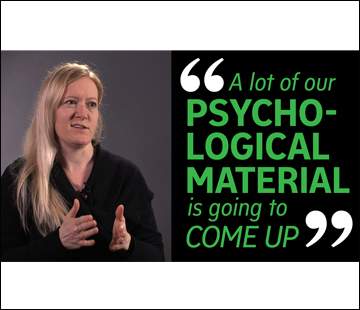Willoughby Britton is Assistant Professor of Psychiatry and Human Behavior at Brown University Medical School. She has also been a committed mindfulness practitioner for 20 years. Mindful met up with Britton after the Center for Mindfulness Retreat in Boston in the spring to talk about the theory and practice of mindfulness.
Britton’s research is often quoted by traditional media. Here she is, in her own words, talking about some of the messy truths about mindfulness.
Meditation is not all peace and calm. Sometimes stuff can come up that needs to be dealt with.
Meditation is not the “warm bath” it’s been marketed as in this country, Britton says.
“A lot of psychological material is going to come up and be processed. Old resentments, wounds, that kind of thing,” says Britton, “But also some traumatic material if people have a trauma history, it can come up and need additional support or even therapy.” Some of Britton’s research is making headway into understanding “difficult or challenging mind states” among advanced meditators and scholars that can occur as a result of intensive meditation practice.
We didn’t predict just how popular meditation was going to be.
When Britton is approached by educators who want to bring mindfulness to their schools, she attaches a warning: “Be prepared to be wildly successful.” Britton says she’s seen students at Brown get so excited that they spend their summer meditating in the forest, 12 hours a day.
“[Meditation leaders] should take responsibility for that and make sure students have some supervision,” she says.
For people trying meditation for the first time, Britton recommends letting the practice “cook” internally before missionizing to others. “I think it’s really predictable though, so I don’t know how you avoid that.”
When science meets meditation: combining theory and practice.
Britton says her own “trajectory of suffering” lead her to meditation. When she was in college in her twenties, her best friend committed suicide. To cope with anxiety she developed, she picked up a book by Jack Kornfield called A Path With Heart. “That’s what got me started. I carried it around with me for almost a decade. It’s like my Bible.”
Britton talks about how her own meditation experiences to inform her research questions. “I think that’s actually one of the only applications of mindfulness that hasn’t been marketed yet: to bring it to enhancing science.”







